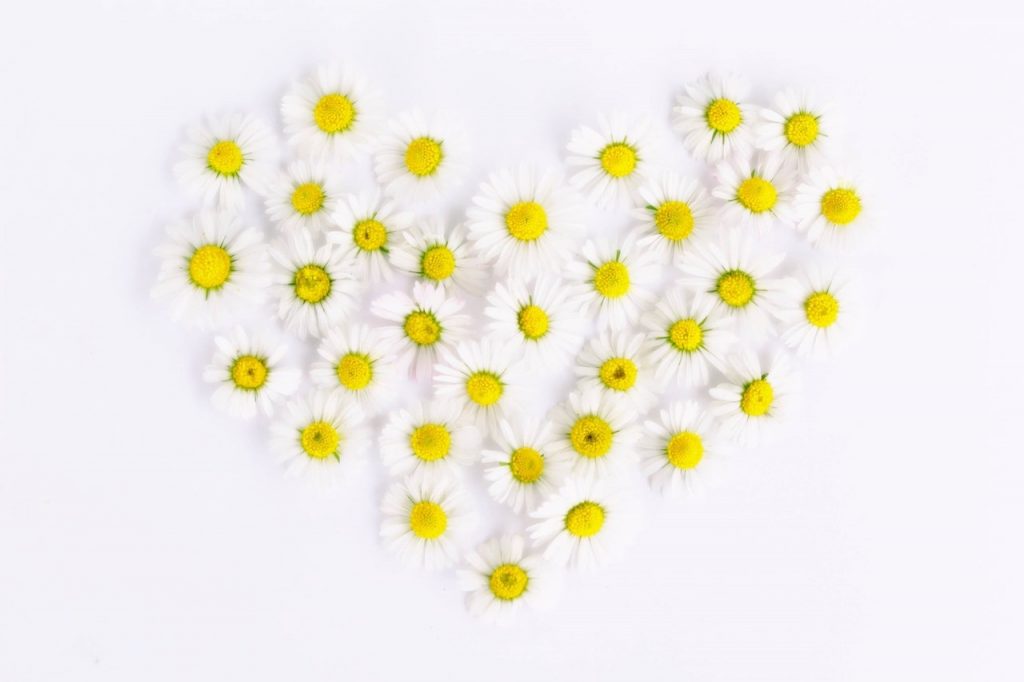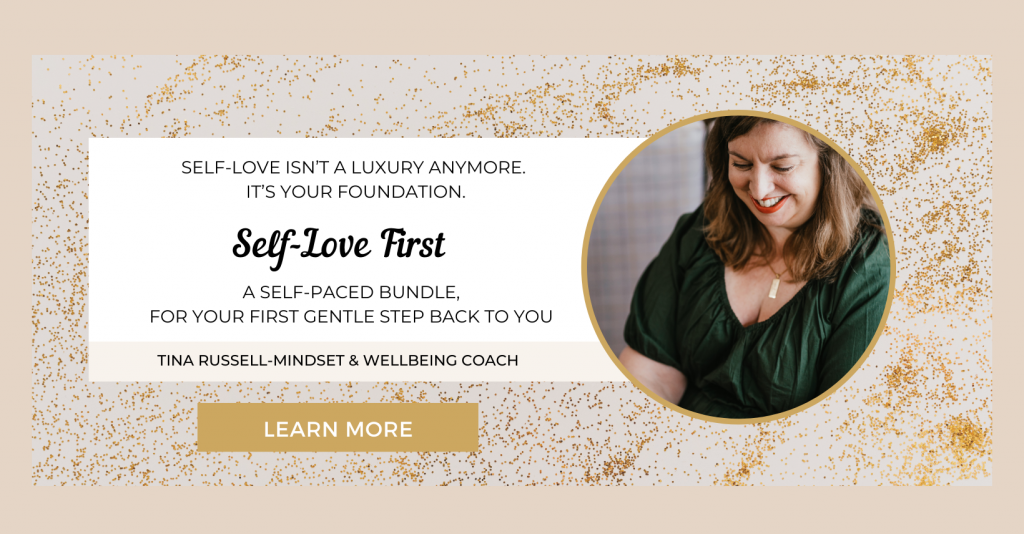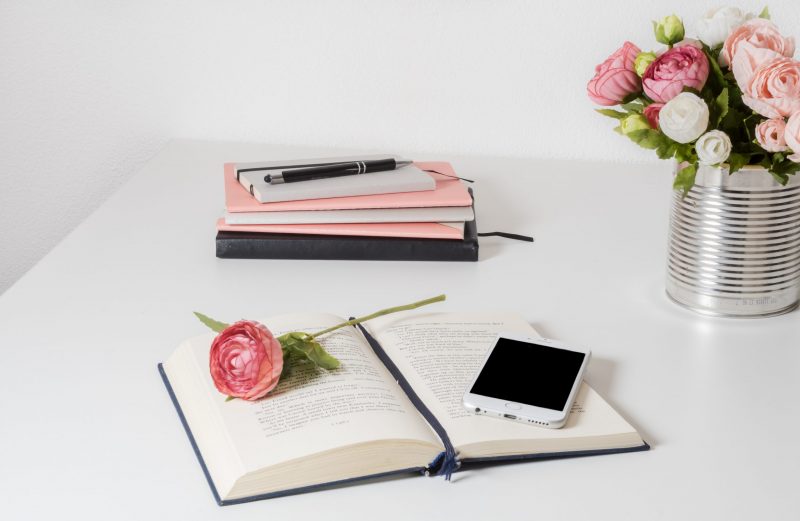This post was updated on 23/09/25
Self-care and self-love; they are both terms that you’re probably hearing a lot at the moment. In fact there is a danger that the terms are being overused, especially when they are in the wrong context. So even though you’ve probably heard them recently, you might not know what they mean in practice. You might also be thinking it’s tricky to untangle self-care from self-love and to work out which is which. It’s easy to confuse the two, especially in our overly competitive society. We’re bombarded with so many messages about what other people do and the “that girl” and 5-9 trends. There’s messages about the “right” way to eat, dress, exercise, and generally take care of yourself that it is easy to lose sight of the fact that self-care and love love are distinctly different.
One way we get self-love wrong is that we equate it with self-care. The two are intertwined but not the same thing. You could carry out lots of self-care but that doesn’t always mean you feel better about yourself. That’s because although self-love involves self-care, not all self-care leads us towards self-love. So what are the differences and similarities and do you need both?
What is Self-Care?
In our society, when we talk about self-care, things that come to mind are exercise, nutrition, rest and relaxation, bubble baths, and massages. These are all great self-care practices! But self-care involves so much more
Self-care means mindfully and consistently nurturing all aspects of your own wellbeing. Self-care is any activity you deliberately do for yourself to take care of your mental, emotional, and physical health. It sounds simple enough but is often overlooked. When we are living lives filled with activity, noise, and hurry, it is incredibly difficult to feel healthy and rested. When that is our overall experience with life, the result is that we become stressed and burned out. In order to nurture the health of our mind, body, and soul, we need ways to recentre and restore. We need these in short spurts throughout the day, and also in longer stretches.
Like self-love, self-care is not a selfish act. Acts of self-care that address your needs, ultimately place you in a better state of mind which in turn enables you to be in a better position to take care of others. So, how can self-care be selfish?
It is important to note that self-care is never something you force yourself to do, nor is it an activity you don’t enjoy. Larissa Marks, Spiritual Director and Enneagram Coach explains, “The thing about self-care is that it is a practice that requires you choosing to do it. It will not happen unless you intentionally make space for it.” Self-care serves to refuel you, not sap your energy.
There are different levels of self-care
When we talk about caring for ourselves mind, body and soul, we’re talking about looking after ourselves, starting with our basic needs and working up.
Survive
Our basic needs include feeling safe, secure and warm. Having nourishing food and water and getting enough rest and relaxation. I think of this as surviving mode.
Thrive
Once we’ve covered our basic needs, we can think about things like nurturing routines and rituals, living in balance and with intention, keeping our living space clean, being creative, having fun, learning, planning your future, and working towards your full potential. This is what I think of as thriving.
The practice of self-care is as important for your relationship with others as it is for you. In taking adequate care of yourself, you are optimising your ability to show up in a loving manner for everyone around you and beyond. It’s the self-awareness that you need time for yourself to grow or develop in any way. Only you can decide what that is, based on what you need at the time. It could be anything from exercising your body to reading a blog post or doing the dishes because you know it will make you feel relaxed tomorrow morning.
Yes even housework can be self-care! It’s all to do with the mindset you have around the activity and if it will make you feel looked after and better about life. I know I love getting the kitchen cleaned up after dinner, because its a great feeling that its all done before the morning. However on Fridays we tend to watch a film, so things are much more relaxed. On a Saturday morning I don’t mind doing a couple of extra things, knowing the night before was the chilled out start to the weekend we needed. It might sound counter-intuitive but it’s only a few things and it works for us.
For anyone seeking to live a healthy, sustainable life, one vital habit is self-care. When you know and understand yourself, self-care becomes much easier and is nearly automatic. Asking yourself what you need, and giving yourself just that. Unapologetically and because you know you can.
Self-care is the part of self-love that involves you taking care of you, as opposed to you taking care of others.


What is Self-Love?
Self-love is deeper than self-care, it’s a path in the direction of self-acceptance, and that acceptance is important because it frees us from judging the self-care we need. Self-love focuses on accepting both our lovable and unlovable parts. It is intimacy with our truths, gentleness with our faults, and appreciation for what makes us each special.
Self-care can help your mind, body and soul and the overall landscape of our lives, but self-love is what’s going to help with how we feel. Your relationship with yourself impacts absolutely every area of your life. It affects how you experience both the mundane and significant moments in your life. It is the cornerstone of your ability to flourish fully and evolve into who you are meant to be.
As Jeffrey Borenstein, President of the Brain & Behavior Research Foundation, puts it: “Self-love is a state of appreciation for oneself that grows from actions that support our physical, psychological and spiritual growth. Self-love means having a high regard for your own well-being and happiness. Self-love means taking care of your own needs and not sacrificing your well-being to please others.”
What does self-love mean to you?
For starters, it can mean:
- Talking to and about yourself with love
- Prioritising yourself
- Giving yourself a break from self-judgement
- Trusting yourself
- Being true to yourself
- Being nice to yourself
- Setting healthy boundaries
- Forgiving yourself when you aren’t being true or nice to yourself
What are the benefits of self-love?
Developing a good relationship with yourself is vital for good mental wellbeing. Being kind to ourselves lowers anxiety and stress, and helps build self-esteem and resilience. Furthermore, if you don’t develop a good relationship with yourself, you may fall into bad habits like people-pleasing and perfectionism.
Being in tune with your values makes it easier to live a life that’s authentically you. Self-love gives you the courage to be assertive, make decisions and set boundaries in your life. Here are some of the benefits of self-love:
- Increased self-esteem. Self-love is bound up with self-esteem – which is vital for good mental health. Self-esteem is all about your overall sense of self-worth. It’s about how much you like or appreciate all the little things that make you unique.
- Lower anxiety. When we feel good about ourselves, we’re less vulnerable to anxiety. Studies suggest that a healthy sense of self-esteem may act as a buffer to anxiety. T
- Lower stress. Modern life is stressful. But it’s important to learn to manage it. Reducing stress in your life is a great way to show yourself compassion.
- Avoid burnout. Are you a people-pleaser? Or do you have a demanding job or family life? If you’re always saying ‘yes’ to things, you risk becoming overwhelmed and burning out. Learning to prioritise yourself and your own needs will help you cope with the demands on your time – and to help other people. It’s like the familiar flight safety instruction to put your own oxygen mask on first.
- Build resilience. If you love yourself, it’s easier to bounce back from hardships. Studies suggest that when our self-esteem is higher, emotional wounds such as rejection and failure feel less painful.
- Feel in control. Practising self-love, especially during uncertain times, can give you what psychologists call a greater ‘internal locus of control’. This means that you feel a greater sense of control over your life – and build feelings of greater safety.
- Find your values and purpose. How well do you know yourself? Between societal pressures and our own projections of how we should be, it’s easy to lose sight of who we truly are. And how can we ever show ourselves real love and compassion if we don’t know what makes us tick? That’s why, if you want to treat yourself well, it’s important to take time to tap into you. Invest time getting to know your interests, likes and values – and use them to practice self-love.
- Have better relationships with others. The relationship you have with yourself sets the tone for the relationships you have with other people. Because you can only connect with others as deeply as you can connect with yourself.
- Be more assertive. If we love ourselves, we tend to be more assertive and confident in our decision-making. We’re more likely to stand up for ourselves. And we’re less likely to tolerate abuse or mistreatment because we know we deserve to be treated better.
- Set boundaries. We’re less prone to people-pleasing and find it easier to express our needs. And say ‘No’.
- Achieve your goals. A healthy sense of self-love and self-esteem allows you to recognise your strengths and learn from your mistakes. You develop a growth mindset as opposed to a fixed mindset. You persevere because you don’t have an intense fear of failure and genuinely believe in your capabilities.
You need to be intentional about practising self-love. This is so that you honour yourself by showing self-respect when you dedicate a portion of your day towards this goal of self-love.
Still not sure where to start? Start by being kind, patient, gentle and compassionate to yourself, the way you would with someone else that you care about. The rest will follow.


Self-care is any activity that individuals do for themselves, to protect, maintain, develop and improve their health and wellbeing. It is something that nourishes or benefits your mind body or soul in some way. Self-care is anything that inspires you and makes you happy. Any activity that is like making a deposit in your energy bank.
Self-love, on the other hand, is about cultivating gratitude and acceptance towards yourself, physically and emotionally. Loving yourself unapologetically, feeling proud and confident. It’s how you feel better about yourself and accept your flaws. Above all things, Self-love is believing in ourselves.
One size doesn’t fit all when it comes to self-care and self-love. Not everyone feels calm after a massage, just as not everyone finds confidence from the same sources. What’s so important about self-care is that you spend time discovering what it is that makes you happy or makes your day just a little bit better. It’s not a cure-all for depression or anxiety, but it’s something to add to your routine to reduce stress and slow down your life.
In summary, we need both self-care and self-love in our lives. While these two are different, they’re both necessary to a healthy, fulfilled lifestyle. You can practice self-care without loving yourself by just going through the motions. However when you love yourself, you will want to also care for yourself. I think one of the reasons people don’t do this is the many misconceptions and myths about self-care and self-love. I’m going to cover this in another blog post.
Mastering self-love will transform your life; there’s no doubt about that. I would like to help you along that path.







